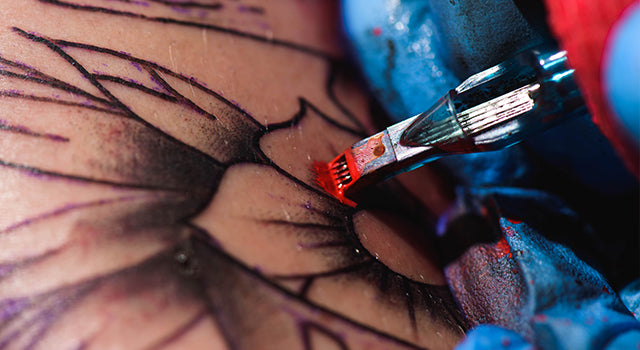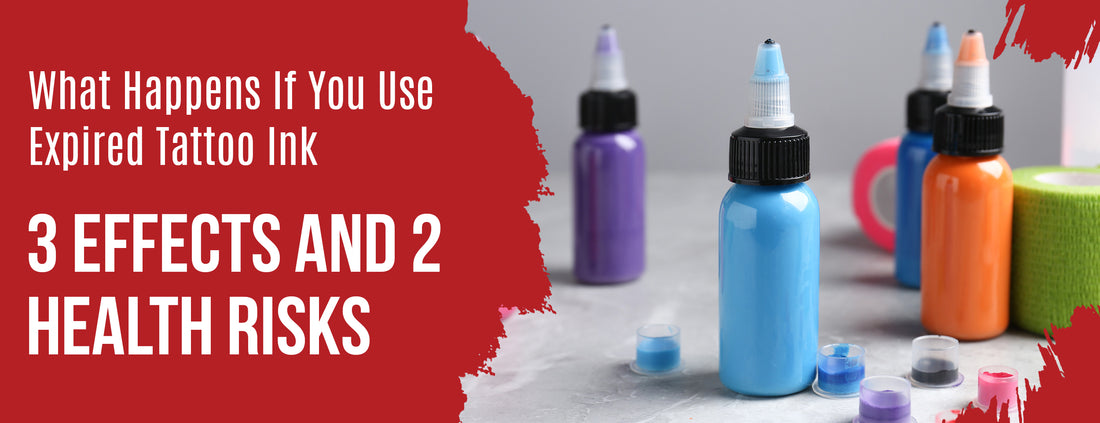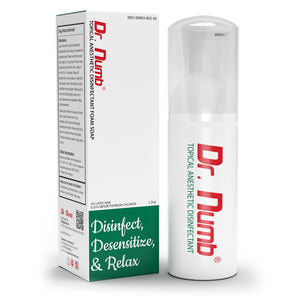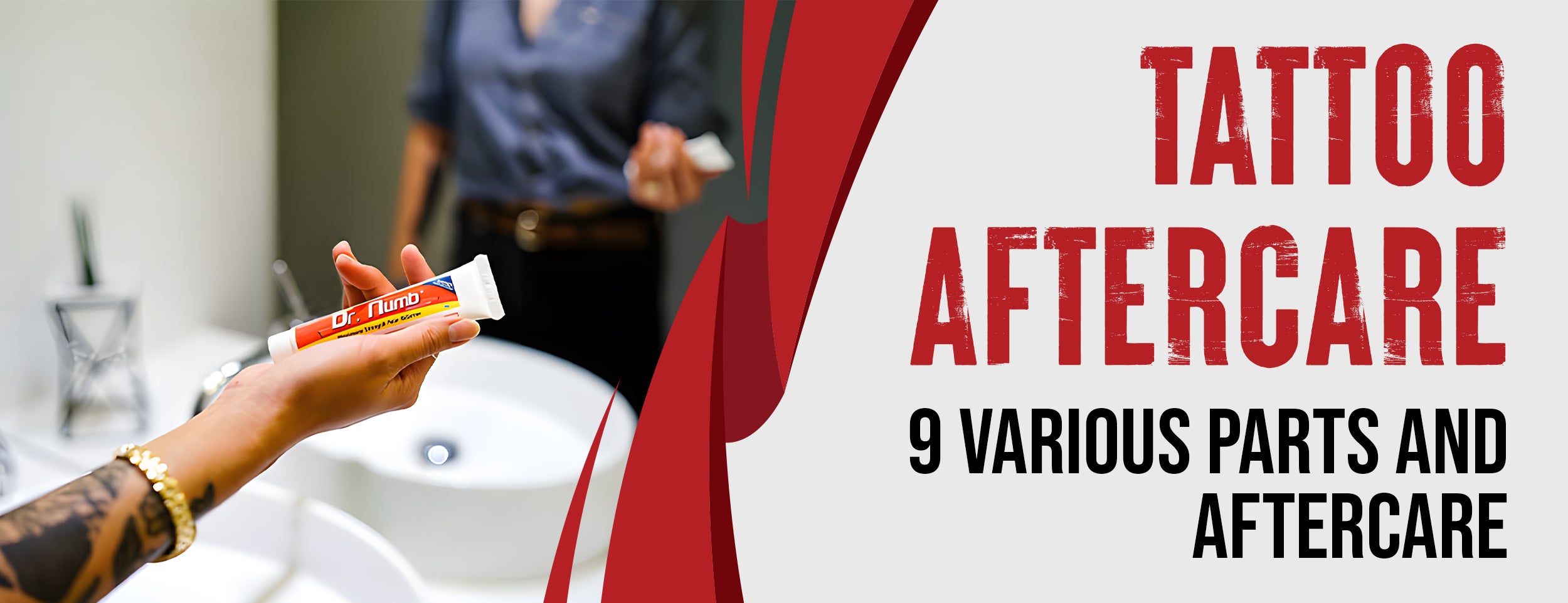Expired ink may contain harmful bacteria or be contaminated, increasing the risk of infection and allergic reactions. The chemical compositions of expired ink may have changed, making you more susceptible to allergies.
Aside from health risks, using expired ink can harm the appearance of your tattoos, potentially leading to dull, faded, or ruined tattoos. This can happen due to the expired ink's inability to hold color and achieve proper shading.
This blog post will delve into the negative consequences of using expired ink, its effects on your tattoos, and the health risks associated with its use.
What Happens If You Use Expired Tattoo Ink: 3 Effects

Tattoo inks are generally safe and reliable, but some can be hazardous if expired, contaminated, or inferior. We will explore the effects of expired tattoo ink on tattoos, focusing on three main areas: dull results, permanent scarring, and bad outcomes.
Dull Tattoo Results
Tattoo ink is designed to produce vivid, long-lasting colors that enhance the beauty and meaning of a tattoo. When ink expires, it loses its potency and vibrancy, leading to dull and faded results. This can be due to several factors, including.
Oxidation: When ink is exposed to air and light, it can oxidize, which changes its chemical composition and reduces its saturation.
Contamination: When ink is stored improperly or mixed with other colors, it can become contaminated, affecting its consistency and color accuracy.
Inhibition: When ink is past its prime, it can inhibit the pigment from settling into the skin, resulting in patchy or uneven coloring.
Expired ink impacts tattoo shading and quality in the following ways:
- Faded outlines and faded shading.
- Dull, washed-out colors that lack depth and contrast.
- Inconsistent ink flow that causes blotches and streaks.

Permanent Scarring
Tattooing can also result in permanent scarring if the ink used is not safe or sterile. Expired ink can pose a risk to the skin and the body in several ways, including:
- Infection: When ink is contaminated with bacteria or other pathogens, it can cause skin infections, leading to scarring, abscesses, or worse.
- Allergic reactions: When ink is allergenic or contains harmful chemicals, it can trigger an allergic reaction, resulting in scarring, hives, or anaphylaxis.
- Granulomas: When ink particles are too large or not biodegradable, they can cause a granuloma, a lump or nodule of cells that form around the ink, leading to scarring and discoloration.
Expired ink causes long-term skin effects that include:
- Microscopic damage to the dermis disrupts its natural structure and healing process.
- Chronic inflammation can impair the skin's immune function and lead to fibrosis and scarring.
- Cellular changes can increase the risk of skin cancer or other skin disorders.
Examples of people with permanent scarring caused by expired ink:
- A 23-year-old woman developed granulomas and scarring after getting a tattoo with an expired ink that contained red pigments. She had to undergo several laser treatments to remove the ink and reduce the scarring.
- A 35-year-old man contracted a staph infection from tattoo ink that was improperly sterilized. He needed antibiotics and skin grafts to repair the damage caused by the disease.
Bad Results

Expired ink can also lead to a visibly bad tattoo, which can cause embarrassment, disappointment, and even regret. A lousy tattoo has several causes, including:
- Poor-quality ink that fades, smears, or runs.
- Inconsistent or uneven ink application that creates flaws, gaps, or distortions.
- Allergic or adverse reactions that cause itching, swelling, or scabbing.
The ink that has expired has ruined tattoos like:
- A butterfly tattoo that lost its color and symmetry after being inked with expired blue and purple pigments.
- A portrait tattoo that turned out blurry and smudged after using expired black and gray ink.
- A text tattoo that became infected and scarred after using expired white ink caused an allergic reaction.
Use of Expired Tattoo Ink: 2 Health Risks
You may think it doesn't make much of a difference, but in reality, expired tattoo ink can have severe health consequences. In detail, we will explore the various health risks associated with using expired tattoo ink.
Bacterial Infection
One of the most significant risks of using expired tattoo ink is the development of bacterial infections. Expired links can contain harmful bacteria that thrive in the expired environment. When injected into the skin, bacteria can quickly enter the bloodstream and cause a wide range of issues, including:
- Skin irritations and rashes.
- Swelling and redness around the tattoo site.
- Sepsis, which can be life-threatening.

Expired Tattoo Ink Bacteria Types
Expired tattoo ink can become an incubator for bacteria that are usually harmless. However, when injected into the skin, they can cause health problems. The following are common types of bacteria that can grow in expired tattoo ink and their harmful effects on the body:
- Staphylococcus aureus: This can cause harmful infections, including boils, impetigo, and cellulitis.
- Pseudomonas: Can cause skin rashes and opportunistic infections, especially in those with weak immune systems.
- Streptococcus pyogenes: Responsible for infections such as strep throat and scarlet fever and can cause impetigo and cellulitis.
Exposure to Expired Ink
Bacterial infections caused by expired tattoo ink are not uncommon. According to a study, almost a third of all tattoo-related bacterial infections resulted from using expired ink. It's, therefore, essential to be cautious when using tattoo ink, ensuring that it's within its expiration date.
Infectious Diseases
Another significant risk of expired tattoo ink is the potential spread of infectious diseases. Expired ink can be an essential carrier of bloodborne pathogens that can be transmitted through needles, potentially leading to severe health issues. Here are some infectious diseases that can be caused by using expired tattoo ink:
- HIV: Human immunodeficiency virus (HIV) can cause AIDS if left untreated. It can be transmitted through the contaminated blood found in expired tattoo ink.
- Hepatitis B: This is a viral infection that affects the liver. It can be transmitted through contact with contaminated blood, such as when using expired tattoo ink.
- Hepatitis C: This viral infection can lead to long-term liver damage. Although less contagious than hepatitis B, it can still be transmitted through expired tattoo ink.
Case Studies
Examples of people who have contracted infectious diseases due to expired tattoo ink are not unheard of. For instance, a man in the UK contracted HIV and hepatitis B after he had a tattoo using expired ink. A woman in the US developed hepatitis C after receiving a tattoo from a non-professional, where expired ink was used.
Tattoo Ink that Has Expired: 3 Prevention Tips

The ink may contain bacteria and viruses that can cause infections, allergies, and other complications. It is vital to know how to prevent the use of expired tattoo ink.
Proper Storage
Proper ink storage is critical in ensuring the freshness of tattoo ink, reducing the risks of using expired ink. The ink that is not correctly stored can quickly pass and become unsafe for use. Here are some tips for proper ink storage:
- Keep ink in a cool, dry place away from direct sunlight and heat.
- Store ink in airtight containers to prevent contamination from bacteria and other microorganisms.
- Avoid storing ink in the refrigerator, as the temperature fluctuation can damage the ink's consistency.
Checking Expiration Dates
The checking of expiration dates is one of the most crucial steps in preventing tattoo ink from expiring. The manufacturer usually indicates the ink's expiration date on the bottle or packaging. Here are some tips on how to determine if ink has expired:
- Check the ink bottle or packaging for the expiration date.
- Inspect the ink's consistency and color. Expired ink may have a clumpy texture and change in color.

Purchasing from Reputable Sources
Purchasing ink from reputable sources is essential to ensure that the ink is not expired and is safe for use. Always buy from reputable suppliers, such as tattoo supply stores or online retailers. Tips for finding reputable sources for tattoo ink:
- Check the supplier's reputation by reading reviews and testimonials from other tattoo artists.
- Look for a supplier that offers a wide selection of high-quality tattoo pigments from trusted manufacturers.
- Ensure the supplier follows proper storage procedures and shipping methods to maintain the ink's quality and freshness.
Conclusion
Using expired tattoo ink can have negative consequences, including bacterial infections, permanent scarring, and ruined tattoos. You can significantly reduce the chances of these adverse outcomes by adhering to proper storage practices, checking expiration dates, and purchasing ink from reputable sources.
Taking these preventive measures seriously ensures your tattooing experience is as safe and satisfactory as possible. Don't let expired ink diminish the meaning of your tattoo. It expresses who you are.










![Antibiotics and Tattoos: 3 Risks and 3 Effects [with 4 Precautions]](http://drnumb.com/cdn/shop/articles/Can_You_Get_Tattooed_On_Antibiotics__3_Risks_and_3_Effects_4_Precautions.jpg?v=1714128292)

